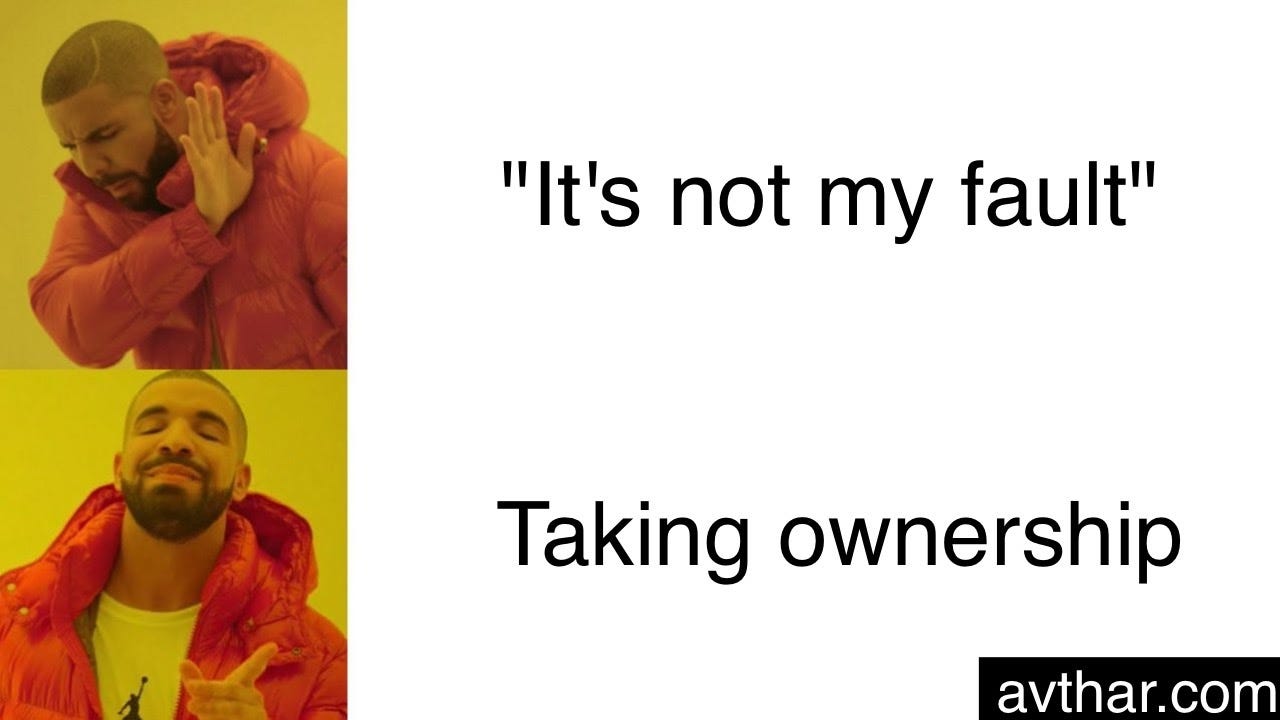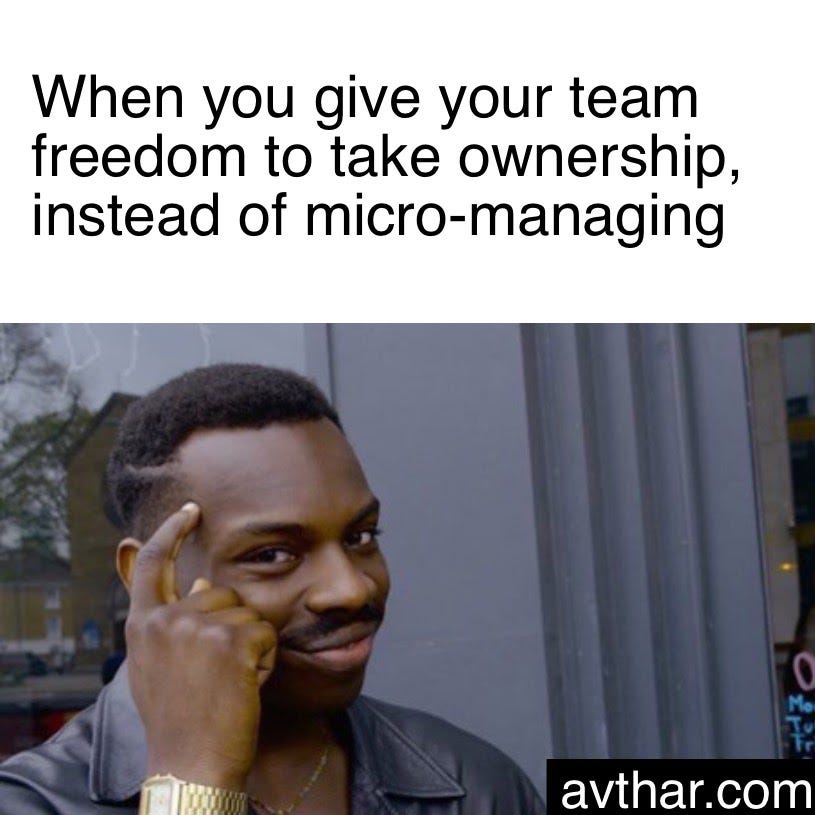Hello from New York City!
Welcome to the edition #8 of Avthar’s Weekly Newsletter. This is where I share lessons and experiences about startups, learning, health and happiness, all to help you level up your own life.
I’m trying something different this week. This newsletter features a single short essay on a topic that’s deeply influenced my career and professional life: The Founder Mentality.
Let me know how you like it. Please enjoy!
PS. This newsletter is at 99 subscribers right now! Thank you so much for your support and readership!
I’ve got something special planned for when we hit 100 subscribers. In order to hit that landmark, I’d be super grateful if you’d share this newsletter with your friends or on social media, with a short note of why you liked it. 🙏🙏🙏
The Founder Mentality
“Leaders must own everything in their world.
There is no one else to blame.”
- Jocko Willink, Extreme Ownership
I took the leap to start a company as my first ‘real job’ straight out of college. As a person of color and an international student in the US, navigating the world of startups was exciting, scary and, at times, exhausting.
However, I’m grateful for this experience because it equipped me with the most important tool to succeed in business and in my career: The Founder Mentality.
Founders take ownership over everything
As a founder, you are ultimately in charge of the success of the company. Being in charge doesn’t mean ordering people around and “being the Boss”, but it does mean taking responsibility for everything in the company, especially things that go wrong.
When something goes wrong, it’s only human to play the blame game and try to absolve yourself from being at fault:
“Bob said he was going to call those people, I didn’t know about it”
“Priya didn’t do the report in time, so it wasn’t my fault.”
“Jordan wrote that section, so it’s not my problem.”

Founders, on the other hand, need to take Extreme Ownership over everything in the business. As a founder, you cannot blame anyone else.
And there will be situations where other people have clearly caused the problem, but that problem is still the founders fault because they didn’t put the systems in place to prevent it.
Mistakes are often rooted in the company culture, hiring, communication and/or team systems, all of which founders are responsible for. Even if the problem is not your fault, it’s your responsibility to fix it.
Aligning your team

When you're a founder, you care the most about the success of the company. It’s the baby you’ve brought into the world and you would do everything in your power to make it grow and thrive.
Founders naturally work harder and longer than employees, because they’re aligned with the goals of the company. However, founders can’t do everything by themselves, that’s why they need a team to help them achieve the company’s vision. Therefore, in order for the company and the founder to be successful, founders must align and properly incentivize their team.
The best founders align the incentives of their team, such that each person takes on accountability and ownership over their projects. This goes beyond giving people financial incentives like salary and stock, but also ensuring that each person feels that their work is important to the team and has a meaningful impact on the people the company serves.
Applying Founder Mentality as an employee
The Founder Mentality has stuck with me and boosted my career even though I’m now an employee. One of the reasons I was hired in my current job, as a Developer Advocate at Timescale is that the CEO wanted someone with a founder’s mindset - someone with a proactive spirit, who’s able to take ownership of projects and deliver with little supervision.
“What would an owner do?”
Taking on a founder mentality as an employee will help you become a top performer in your field. The more you can think and act like a founder (or owner) in your job, the more likely you will be one in future. Having a founder mentality as an employee means caring about your work as much as a founder would and executing to the best of your ability.
It also means helping your team succeed by taking on founder-like accountability and ownership. You don’t have to be the boss, just be as helpful as possible to your teammates and help empower them to succeed in their jobs.
People will take notice and you’ll be rewarded with more ownership and more responsibility. Even if you don’t get promoted, practicing having a Founder Mentality will help you succeed in future when you are an owner of your own business, since you have already internalized the mindset and behaviours of a founder.
“If you think like the owner and act like the owner,
it’s only a matter of time until you become the owner.”
- Naval Ravikant
Resources
Resources to learn more about Founder Mentality:
Extreme Ownership by Jocko Willink, is the foundational book on leadership for both business and life [Book]
The Principal-Agent Problem by Naval Ravikant, goes further into the difference in incentives between principles (owners) and agents (employees). [Article]
How to take ownership when it’s not your fault [Video]
There are no bad teams, only bad leaders [Video]
That’s all for this week!
If you haven’t already, make sure to subscribe to the newsletter.
If you enjoyed this week’s newsletter, why not share it with one or two friends?
If anything from this week’s newsletter resonated with you, let me know by replying to this email or tweet me at @avthars. Or better yet, leave a comment:
You can find more of my work and writing on my online home avthar.com



